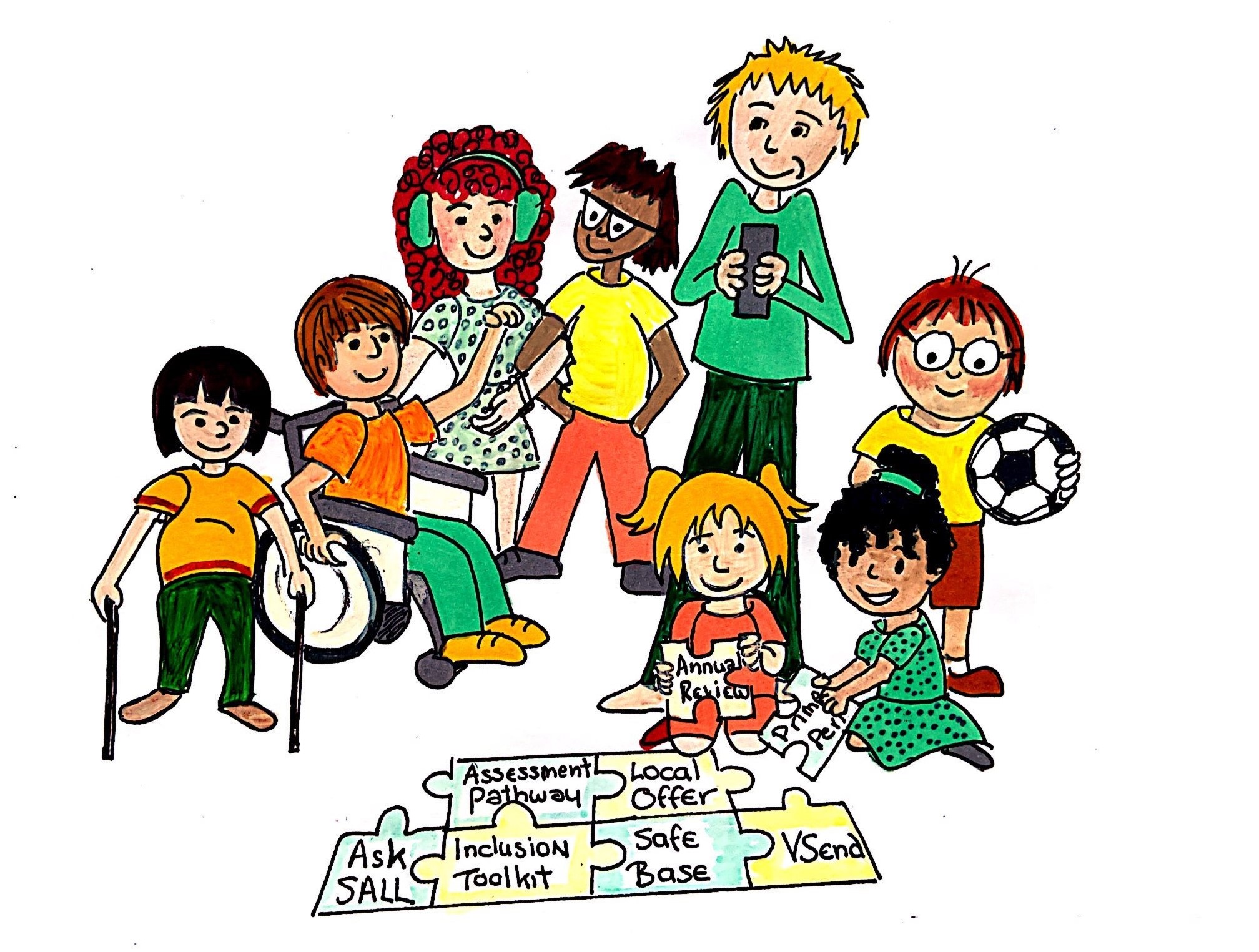Level 1-2 strategies to support high quality teaching
0-5
- staff to undertake a detailed assessment (assess) of the child’s strengths and weaknesses. For example, structured observations assessment and completion of checklists in order to develop appropriate learning plans
- learning outcomes (plan) and supportive approaches to be agreed with parents and delivered consistently (do) to focus on learning, social, self-help or independence and communication skills as appropriate including
- guided reading and writing groups led by the lead practitioner
- differentiation of Foundation Stage Curriculum to facilitate small steps in learning
- differentiated questioning and targeted simplified level, pace and amount of adult talk
- use of visual, auditory and kinaesthetic approaches
- awareness that a child may need more time to complete tasks and that equality of access may mean that they need to do some things differently
- flexible grouping arrangements
- risk assessments for visits, holidays, and other activities outside of the normal timetable
- support to meet the child resulting needs (medication, treatments, access to food or drink, environment issues)
- monitoring child healthcare plans
- flexible teaching to manage absence (for treatment appointments)
- resources and displays that support independence
- encouragement, positive feedback and praise
- take time to gather as much information as possible about the child and family. Use this alongside your own observations to ensure that provision and teaching is matched carefully to the stage of the child's development
- ask the parent or carer whether the child has attended their health check as part of the healthy child programme
- termly planned reviews including the parent and child's voice should take place. Referrals to portage services can be made via the portage website
- a monitoring system should be in place to assess child’s need, identify outcomes, implement support and monitor and evaluate progress (review)
5-16
- adults direct pupils to practice motor activities
- whole class teaching, with targeted adult support
- pencil skills programmes. For example, Write from the Start (Teordorescu)
- generic fine motor programmes, For example, Dough Disco
- access to activities or equipment which promote:
- fine motor development, using beads, pegs, Lego, scissors
- gross motor development, outdoor play equipment, bikes, scooters, PE equipment
- access to life skill orientated learning, dressing up, cutlery
- resources needed include pencil grip, easi -grip scissors
- differentiation may be required to take account of slower pace in performing some tasks – may tire easily
- integration into school after a period of absence needs to be carefully planned and managed
- schools may need to plan for pupil with support and guidance from medical practitioners, parent or carer and pupil
- planned support and intervention may be part of the Individual Healthcare Plan (IHP)
- DfE guidance: Supporting children at school with medical conditions. (Dec 15)
- DfE guidance: Education for children with health needs who cannot attend school (May 13)
- DfE guidance: Guidance on the education of school age parents, DfES (2001)
Further resources listed below
- Lincolnshire cerebral palsy support
- First Move programme
- Lincoln CP Sport
- Ableize Lincolnshire
- Oak academy special needs P.E lessons
- Adapted products from Inclusive Technology
- Assistive Technology ideas from Call Scotland
Referral to Lincolnshire’s Physical disability outreach service at St Francis School. This includes moving and handling training and support, curriculum support, assistive technology and AAC Support can be given in:
- Moving and handling
- AAC Support
- Assistive technology assessment (and loan of equipment on short term basis)
- Curriculum support
Referrals for this service will only be accepted if the pupil has a profound physical disability. For hypermobility and dyspraxia, please follow reasonable adjustments. Open mornings and training open to all Lincolnshire schools where advice can be sought
- Access Physical disability sports. Adapted P.E Support (PD Outreach Team) Inclusive sports
- Access RNIB Bookshare for free resources
- Guidance documents on PDNet effective practice hub
Additional Information:
- pregnancy is not a medical condition and needs should be met in school
- girls are entitled up to 18 weeks maternity leave to be used before and after the birth.
- young people with disabilities are entitled to an annual health check from the age of 14
- see GOV.UK for more information


